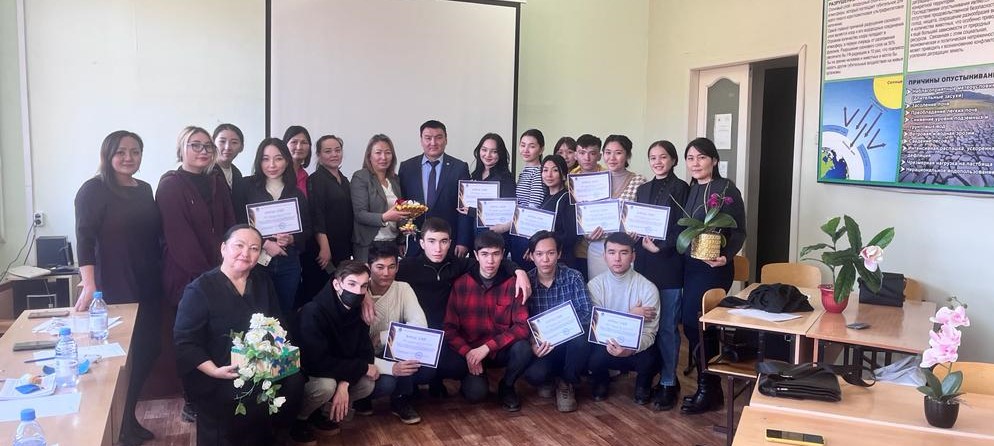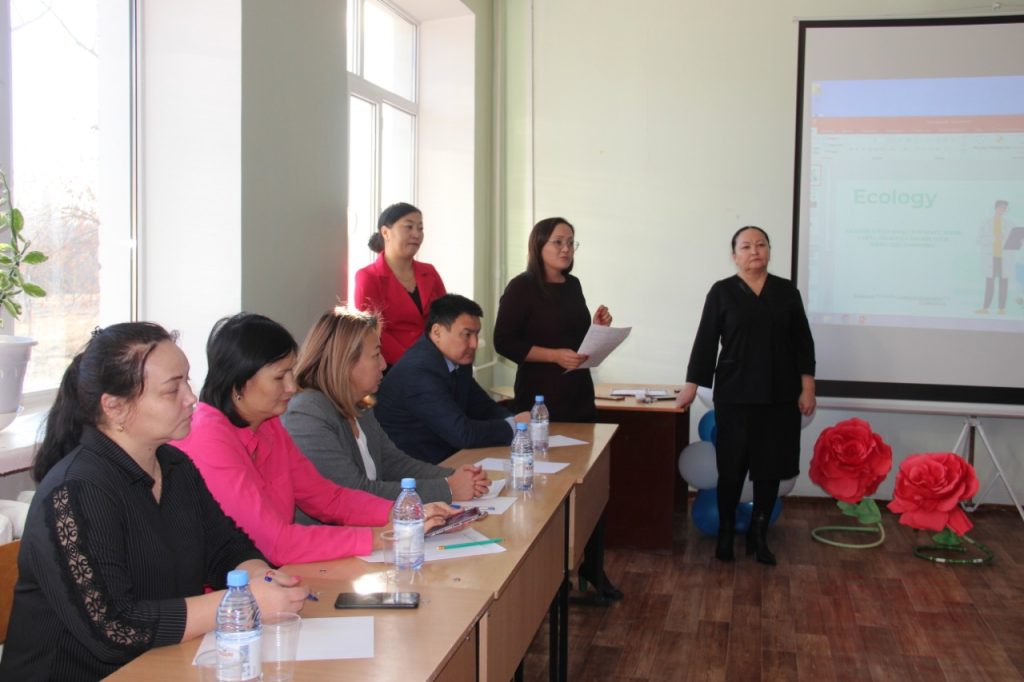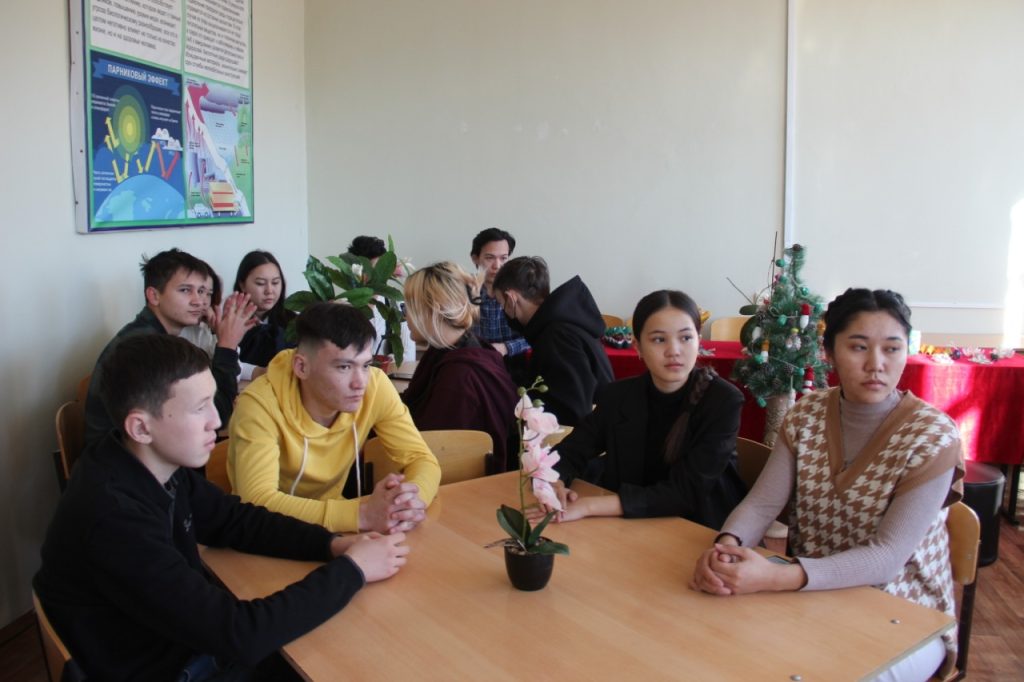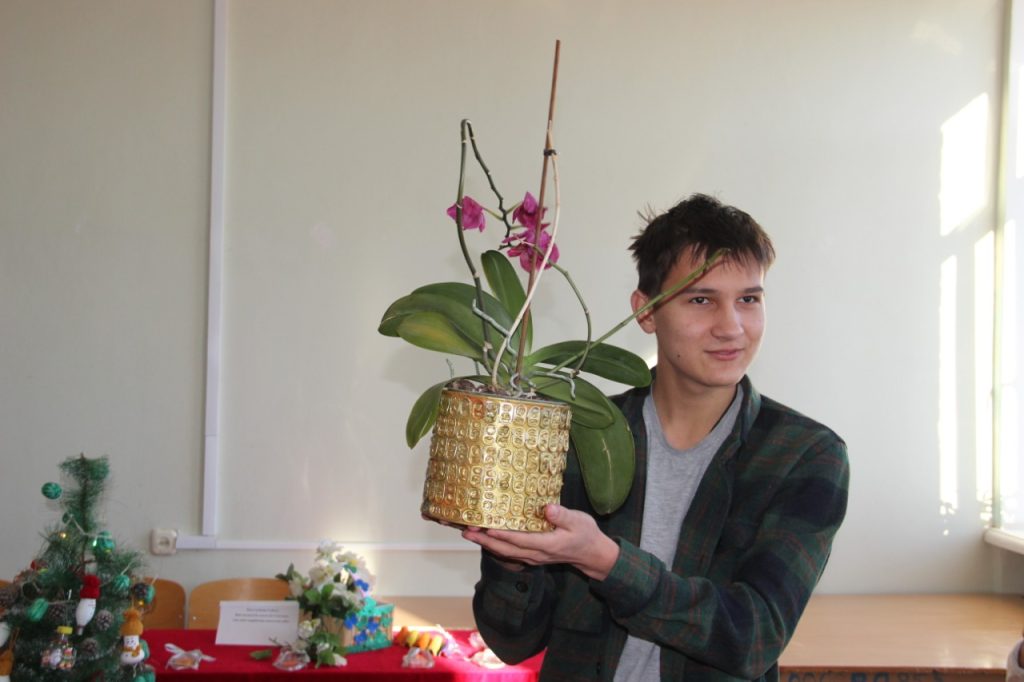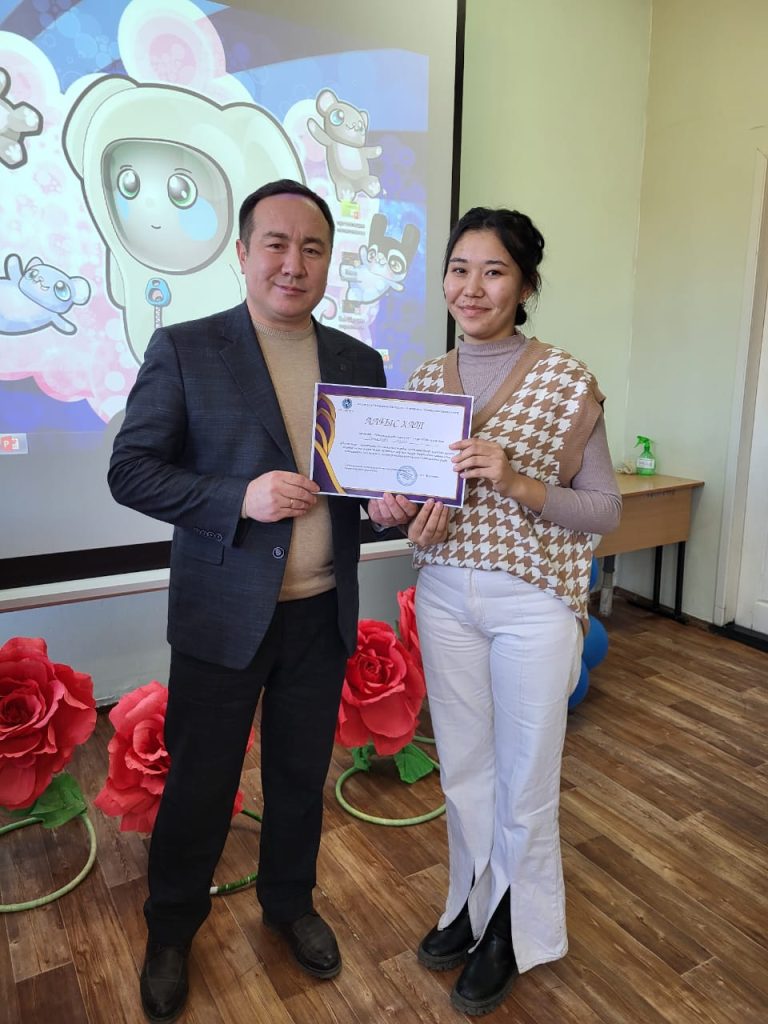During the implementation of innovative ideas for the direction of educational and social work teachers HS «Animal husbandry and bioresources» Gubasheva B. Y., Kairgalieva G.Z and Akkereeva E.K. prepared a project «Recycling is an instrument in formation of ecological education of youth».
Within the framework of this project, on December 9, 2022, a competition of crafts using recycled materials was held. The production of handicrafts from recycled materials is an important part of the aesthetic and environmental education of young people. In addition to developing a creative approach to various subjects in daily life, this type of activity helps to educate young people about the right attitude to the disposal of various household wastes in order to preserve the environment. Several exhibits were prepared for the exhibition.
Plastic bottles are one of the most common types of nature-threatening debris. For example, Ibrahim B., Daulet M., and Beizembay A. students of 1st year students prepared poufs, and students of 4th year Elzhasov A. and Murzalyeva K. – toys for decoration of Christmas tree. Studying group PE-42 Kubzhanova J. proposed several ways to give a second life to a completely useless object, i.e. having repaired and appropriately treated the failed bulbs and packaging chocolate Kinder surprise, can turn them into unique interior decoration elements. The student Kystaubayeva S. prepared a decorative basket for flowers from a shoe box. First-year students – Kenzhebayeva A. and Samatova A. prepared a vase-candy bottle caps. Fedoseyev R. and Zhangaliyeva J. Jar of paints decorated with key-rings of cans with drinks (at the moment all this lies on the dumps of the world, as after the release of the first «key-ring», that is, for more than 50 years, none of them, even the very first, has not had time to rot)turned into a potty for room flowers.
According to the existing legislation, the reuse of vegetable oil in the food industry is prohibited because of the high carcinogen content in the treatment. Used vegetable oils are one of the main types of waste from the food industry (restaurants and cafes), which requires compliance with special storage and disposal rules prohibiting:
– to drain large amounts of cooking oil refinery into the sewer, as they cause blockages and interruptions in the operation of city treatment facilities. It is there that spent oil freezes into an impenetrable mass;
– to pour waste into water or on land, as this leads to pollution, negatively affecting flora and fauna.
At present, incineration is the main method of disposal, but modern technologies allow their reuse. Learning Tulegalieva Z. found a way to use waste oil in the soap industry by preparing several pieces of soap with various aromatic additives.
Umirzakov R. prepared from waste paper finishing material – liquid wallpaper, which are characterized by a number of qualities: antistatic, hypoallergenic, fireproof and very low cost.
The students of 4 courses Temirgali A., Kuantkanova G., Bolatbekova A. and Kubzhanova G. prepared reports with presentations on this topic.
In general, the objectives set were achieved, invited guests of the exhibition showed interest, gave positive feedback on each exhibit. Director of the “Center for the Development of Youth Initiatives” Okshebaev Askhat Erbolatovich highlighted some works for further commercial implementation in the form of a business idea. This event brought together students of all courses. Participants learned to work in a team, acquired oratory and creative skills, mastered the art of speech.
